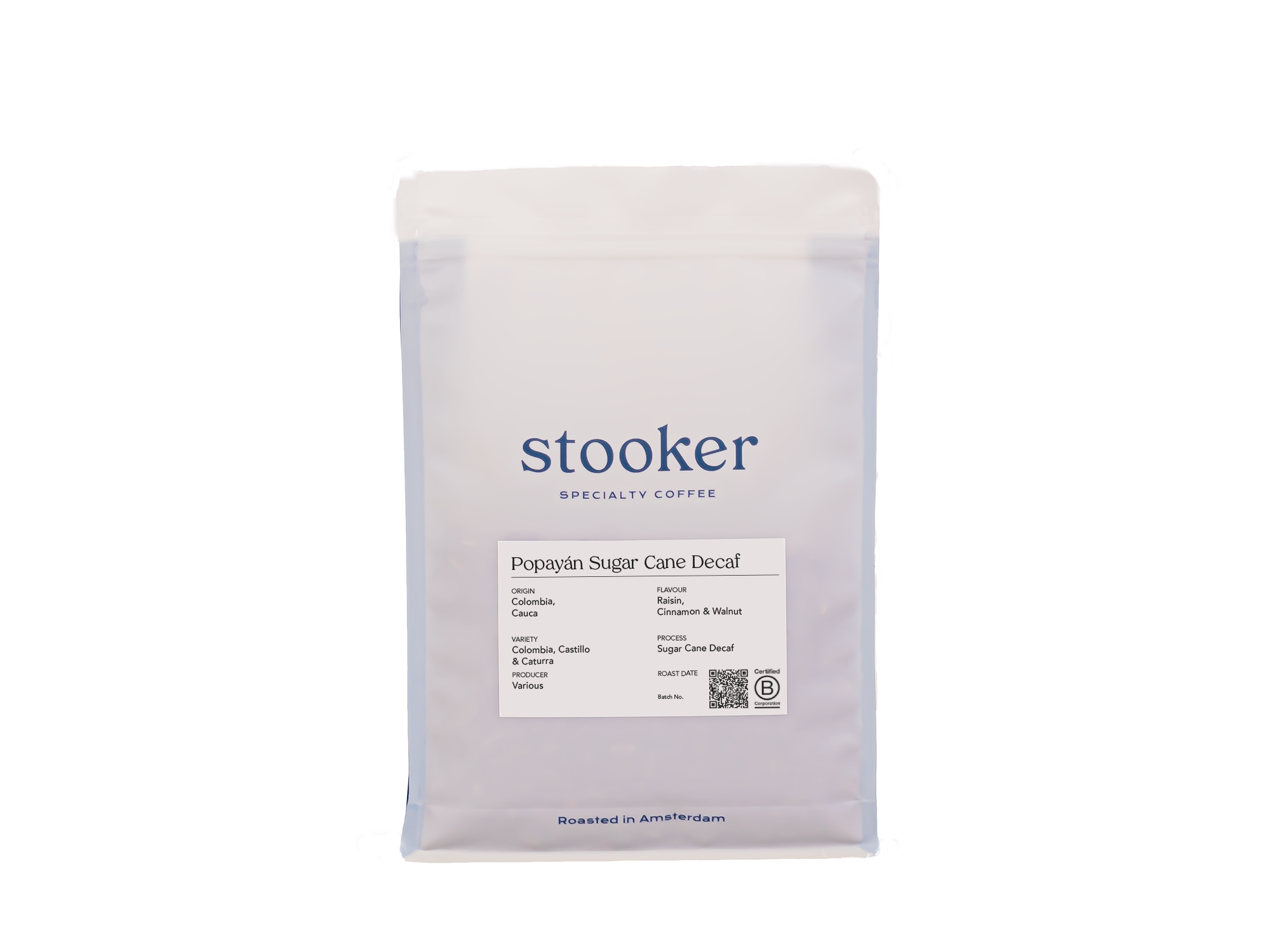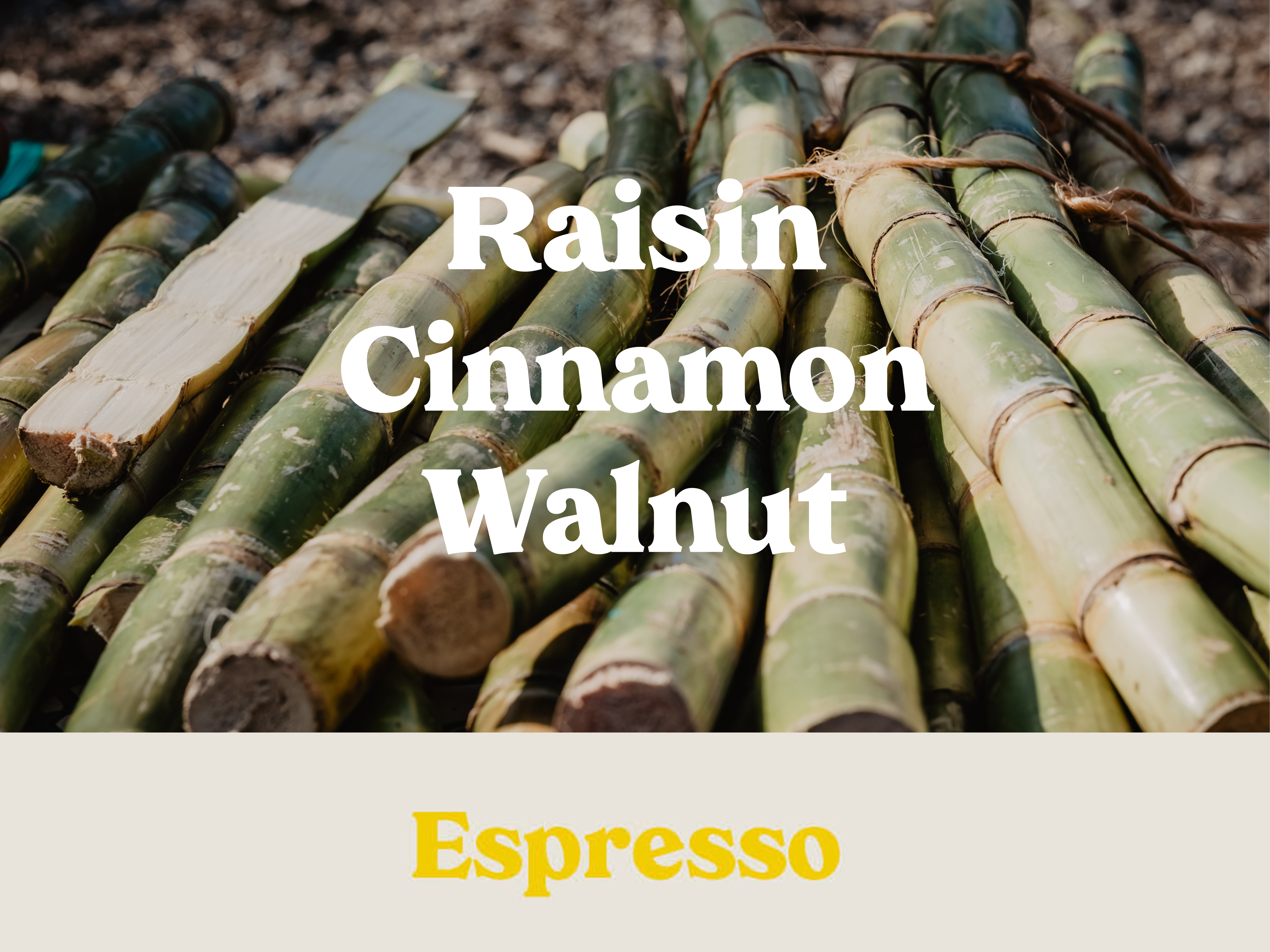Colombia - Popayán Sugar Cane Decaf
Attributes
|
ORIGIN
|
Colombia |
|
REGION
|
Popayán, Cauca |
|
PRODUCER
|
Various
|
|
ALTITUDE
|
1700 m. |
|
VARIETY
|
Colombia, Caturra, Castillo |
|
PROCESS
|
Sugar Cane / Natural decaffeination |
|
FLAVOR
|
Raisin, Cinnamon, Walnut |
Description
About the process
The Sugar cane, or commonly referred to as natural decaffeinated process is done by fermenting molasses derived from the sugar cane to create ethanol. This alcohol is mixed with acetic acid to end up as ethyl acetate.
We know, it sounds spooky. But really it isn’t. You will find ethyl acetate in rum, wine, beer fruit and lots of other edibles. And because of the readily availability of sugar cane in Colombia it makes perfect sense to use it for the decaffeination of coffee.
The beans are moistened with water to open up the pores. In the next phase, the beans are washed with ethyl acetate which will dissolve the caffeine but will leave all tastiness inside the coffee beans. At the end of the process, the beans will be steamed again to remove any ethyl acetate left and being dried to the desired moisture level.
When you’ll open the bag of roasted Popayán you might find a slightly more ’sweating’ bean. As the pores of the beans are more opened up during decaffeinating, oils and fats will make their way out of the coffee bean more easily during roasting. Nothing to worry about, this will not affect taste.
It is thanks to your taste for rare specialty coffee that these farmers can make a significant increase on their ordinary earnings, which enables them to develop their land further.
Enjoy!


